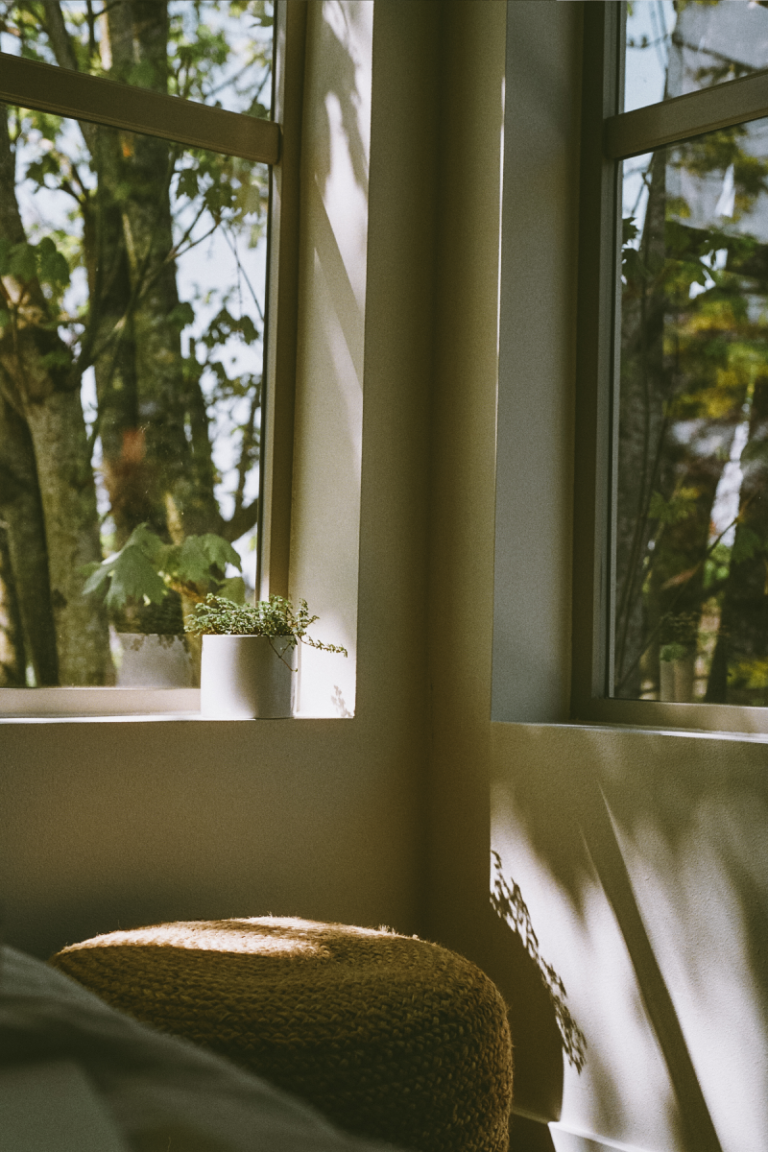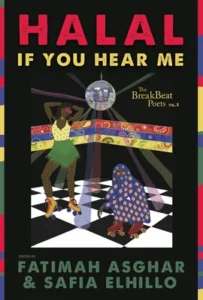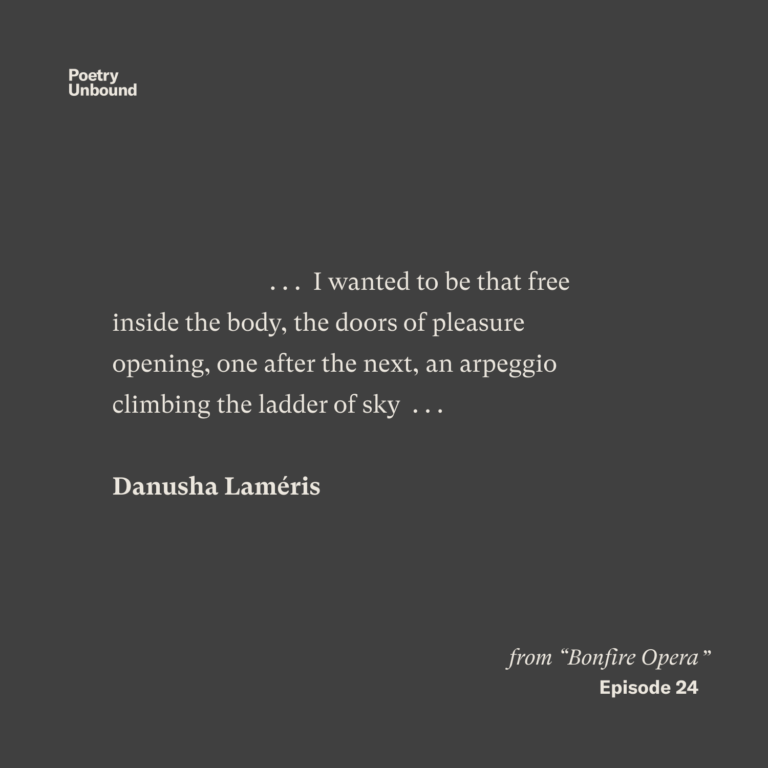Safia Elhillo
Ode to My Homegirls
Friendships deserve praise songs, and here’s a praise song — an ode — to friends that have crossed continents for each other, and would go further if needed.
We’re pleased to offer Safia Elhillo’s poem, and invite you to connect with Poetry Unbound throughout this season.

Image by Annisa Hale, © All Rights Reserved.
Guest

Safia Elhillo is the author of Girls That Never Die, The January Children, and Home Is Not a Country, and is co-editor of the anthology Halal If You Hear Me. Sudanese by way of D.C., she is a recipient of the Sillerman First Book Prize for African Poets, the Arab American Book Award, and the Brunel International African Poetry Prize. She is also the recipient of a Cave Canem Fellowship, a Wallace Stegner Fellowship from Stanford University, and a Ruth Lilly and Dorothy Sargent Rosenberg Fellowship from The Poetry Foundation. Her work has appeared in Poetry magazine, The Atlantic, and the Academy of American Poets’ Poem-a-Day series, among others.
Transcript
Transcription by Alletta Cooper
[music: “Praise the Rain” by Gautam Srikishan]
Pádraig Ó Tuama: My name is Pádraig Ó Tuama, and one of the obsessions I have in poetry is a poem that’s an exploration of time. And that can sound like some kind of experimental physics project in poetry, but it’s not really, because I find myself thinking of friendship and time when I think of the question of time.
This year, it’ll be 40 years since I met my friend Sinéad. We were both in the same village. And, you know, through weddings and funerals and grief and joy and knowing each other well and not being in touch for years and then reconnecting, through coming out, through stories of survival. To mention her is to mention what it is that time does, how time can expand and contract. A poem can do that, but a friendship is the true home about what time can do.
“Ode to My Homegirls” by Safia Elhillo
“smelling of orange rind of cardamom
most beautiful girls in the world wake up bitch
we’re getting waffles you can keep crying
“but you’re going out my marriages
my alibis my bright & hardy stalks
of protea & all i know of love i learned
“at thirteen dialing basma’s home phone
by heart to three-way call whatever boy
so that weeks later when the phone bill came
“only basma’s familiar number beside the time stamp
clearing my name basma herself staying awake
for hours to hang up the phone after
“you who send pictures of your rashes
to the group text & long voice notes
from the bathtub your laughter echoing against the tiles
“you who scatter the world’s map piling into
cheap buses & budget airlines four of us asleep
in my dorm bed six of us overflowing
“my studio apartment false lashes for weeks after
like commas in my every pillowcase you clog my toilet
& admit it you text me screenshots
“from the gucci fashion show getting rich
so i can get u this & when i lived alone
& that man followed me
“one night home from the six train
up lexington & into the hallway
tried for hours to break open my front door
“you took turns from all your cities & stayed
overnight with me on the phone for three days
snoring & murmuring in your sleep”
[music: “Family Tree” by Gautam Srikishan]
I love odes. And this ode, a praise song to homegirls, is a song of joy, of love, of strength, and sustenance, of threat, and of protection, of profound dedication. And it is so located in the in-between spaces, between this group of friends — in their text messages to each other, in the way that they travel with each other, and also in their sleep with each other, their bodies piled on each other, or their way of communicating when they’re far apart, but staying in touch via the phone. I love this poem because of everything that can be encompassed within it.
The opening line: “smelling of orange rind of cardamom.” It’s speaking about the smell of your friends. How close and tender towards each other do you need to be to know, “Oh, this is how you smell.”
And then the second line says, “most beautiful girls in the world.” And then suddenly it’s, “wake up bitch/we’re getting waffles you can keep crying//but you’re going out.” The ways within which you interrupt each other, to go into somebody’s room and to say, “Come on, we’re going. It’s fine if you’re upset, but we’re still going out. I’m taking over your life in a certain sense. Listen to me.” Who’s saying that to whom? Everybody, probably. It’s going back and forth depending as to who’s going through what.
And the intimacies of the body, the smell of the body, using each other’s bathrooms. Admitting to using each other’s bathrooms and clogging it up. Finding a way where all of these things in life are interrupting each other is the ground of this poem to say, “Your body, my body, shared ground, even at distance. All of these things are my commitment to you.”
[music: “Dust of Summer” by Gautam Srikishan]
One of the things that this poem does is it connects various experiences of the phone. To a family phone, where there’s an itemized phone bill and you get your friend to make the other call and loop somebody in, and that would’ve seemed like it was a progression at some point; to then group text messages in ways that the phone has changed — and presumably, the phone will change again — and people are using it as a way of keeping in touch with each other. Somebody says I’m going to get “rich/so I can get u this” and communicates that to somebody else. It’s to say, “You’re with me when you’re with me, and actually you’re also with me when we’re not together.”
But it goes deeper than just technology. This goes into a way to say our communications can be a form of protection: protection from the prying eye of your parents, as well as protection from the threatening criminal pursuing that happened when that man followed the poet up from the subway and was banging on the door.
And this poem speaks about the phone, speaks about nighttime, and speaks about listening and sleep, and the bodies of each other. These, in some ways, are the furnitures of this particular poem and to say that what it is that these friendships do is to turn towards each other and nothing is a barrier. Neither distance, nor day, nor night, nor threat, nor sleep towards the ways within which bodies and communication veer and turn towards each other when they’re needed, in times of celebration and in times of devastation as well.
[music: “The Willows” by Gautam Srikishan]
The poem is in 10 stanzas, and each stanza has three lines, and the lines have horizontal breaks in them too. So there’s a caesura — a gap — and so there’s a lot of space in this poem, but there’s no punctuation, no capital letters, no commas, no full stops the whole way throughout the poem. In a certain sense, the poem crowds in on itself and as you read it, you have to go, “Where am I supposed to take a breath?” And it begins to sound to me at the start like it is a crowd of people who know each other well and who interrupt each other and one story follows another story.
The poem structure is friendly with itself and it’s accompanied, and the shape of the poem is a shape of love between friends, and it shows how that is joyous. And then, as it culminates towards the end, it shows how that deep love is protective and sustaining too. For three full nights, staying awake, murmuring with each other in the phone.
A murmur is an onomatopoeic word. So to say murmur almost sounds like a murmur. And the poem finishes so quietly after having been a poem that builds up the volume of love and friendliness and traveling the world to be with each other.
[music: “Family Tree” by Gautam Srikishan]
“Ode to My Homegirls” by Safia Elhillo
“smelling of orange rind of cardamom
most beautiful girls in the world wake up bitch
we’re getting waffles you can keep crying
“but you’re going out my marriages
my alibis my bright & hardy stalks
of protea & all i know of love i learned
“at thirteen dialing basma’s home phone
by heart to three-way call whatever boy
so that weeks later when the phone bill came
“only basma’s familiar number beside the time stamp
clearing my name basma herself staying awake
for hours to hang up the phone after
“you who send pictures of your rashes
to the group text & long voice notes
from the bathtub your laughter echoing against the tiles
“you who scatter the world’s map piling into
cheap buses & budget airlines four of us asleep
in my dorm bed six of us overflowing
“my studio apartment false lashes for weeks after
like commas in my every pillowcase you clog my toilet
& admit it you text me screenshots
“from the gucci fashion show getting rich
so i can get u this & when i lived alone
& that man followed me
“one night home from the six train
up lexington & into the hallway
tried for hours to break open my front door
“you took turns from all your cities & stayed
overnight with me on the phone for three days
snoring & murmuring in your sleep”
[music: “Praise the Rain” by Gautam Srikishan]
Chris Heagle: “Ode to My Homegirls” comes from Safia Elhillo’s book Girls That Never Die. Thank you to Oneworld and Bloomsbury Publishing who gave us permission to use Safia’s poem. Read it on our website at onbeing.org.
[music: “Praise the Rain” by Gautam Srikishan]
Poetry Unbound is: Gautam Srikishan, Eddie Gonzalez, Lilian Vo, Lucas Johnson, Amy Chatelaine, Kayla Edwards, and me, Chris Heagle.
Our music is composed and provided by Gautam Srikishan and Blue Dot Sessions.
This podcast is produced by On Being Studios, which is located on Dakota land. Open your world to poetry with us by subscribing to our Substack newsletter. You may also enjoy Pádraig’s new book, Poetry Unbound: 50 Poems to Open Your World. For links and to find out more visit poetryunbound.org.
Books & Music
Recommended Reading
The On Being Project is an affiliate partner of Bookshop.org and Amazon.com. Any earnings we receive through these affiliate partnerships go into directly supporting The On Being Project.










